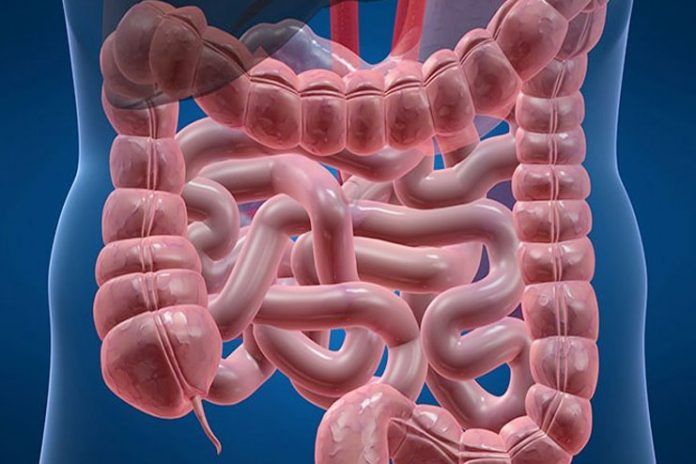Affiliate Disclaimer
Some links in this article are affiliate links. We may earn a small commission if you make a purchase through these links, at no extra cost to you. We only recommend products we find useful to our readersUlcerative colitis is the condition of inflammation of the large intestines or colon, in which all the water from the waste material is eliminated and the waste is then stored. In the condition of ulcerative colitis, the inflammation occurs at the lining of the colon which can cause various symptoms such as abdominal pain, rectal bleeding as well as diarrhea.
Sometimes it has also been found that the problem of ulcerative colitis is linked to various other inflammation of the intestines like Crohn’s disease. This condition is known as inflammatory bowel syndrome. Ulcerative colitis, which only affects to the lining of the colon, can be caused to both men and women in their childhood or in the later stages of the life.
Here, we have tried to provide all the information about the problem of ulcerative colitis along with its symptoms and causes. Read on to know more about the treatment as well as prevention of the disease.
Causes of ulcerative colitis
The major cause of ulcerative colitis can be a major malfunctioning in the immune system, which counters all the outer infection caused by bacteria, viruses as well as fungi. While the immune system activates against the outside invaders usually, in the condition of ulcerative colitis, the immune system behaves abnormally, which results in the inflammation of the large intestines.
The problem of ulcerative colitis can also be passed genetically in the family. This is also the reason why the disease is more common in people suffering with the problem of inflammatory bowel syndrome.
According to the researchers, there are more than 30 genes which affects ulcerative colitis which is an immunoglobulin, although there is still no clarification on the genetic relations between ulcerative colitis as well as its treatment. Researchers are still learning about it in getting more information about the same.
Symptoms of ulcerative colitis
Most commonly rectal bleeding, pain in abdomen and diarrhea are some of the symptoms which always appear in the condition of ulcerative colitis. The symptoms are depends upon the intensity of the inflammation. It has been found that the inflammation, which is linked to the rectum of the colon shoes milder symptoms. There are various symptoms which are depends upon the type of ulcerative colitis. Some of its types are listed below.
● Ulcerative proctitis
In this condition the inflammation is limited only to the rectum and rectal bleeding is the only symptom, which you can find in this stage. Tenesmus and urgency might be the other symptoms.
● Proctosigmoiditis
In this condition, inflammation of the rectum along with sigmoid colon occurs. The symptoms of this disease include rectal bleeding, tenesmus as well as urgency. Some people have also faced the problem of cramps and bloody diarrhea.
● Pancolitis
In this condition, inflammation of the entire colon takes place. The common symptoms of this disease include rectal bleeding, fatigue, weight loss, fever, night sweats, abdominal pain as well as cramps. This condition is also considered as more severe and hard for the treatment.
In this condition inflammation triggers at the rectum and then slides to the left colon. Common symptoms are abdominal pain, especially at the left side, bloody diarrhea, weight loss and cramps.
● Fulminant Colitis
Although it is highly severe type of the ulcerative colitis, it is very rare. Patient suffering with the condition may feel highly dehydrated along with bleeding as well as diarrhea. This condition can only be treated in the hospital under the observation of the doctors through intravenous medicines. Sometimes surgical removal of the colon is also necessary in the condition.
Complications of ulcerative colitis
The complications of the ulcerative colitis include some of the deadly diseases. Sometimes it can also be linked to cancers. Colon cancer is one of the common complication you may face due to ulcerative colitis. The risk of causing colon cancer is increased to the patient of ulcerative colitis compared to the general population.
Patients who have a positive history of the colon cancer are also on the risk of causing rh disease. Certain examinations are important to find out the exact cause of the disease to take care of it accordingly.
Other complications of ulcerative colitis are listed below
- Low back pain due to arthritis as well as sacroiliac joints
- Inflammation of the joints in some cases
- Development of red skin nodules along with red painful eyes which can affect your vision and cause pain in the eye, the symptoms which require immediate treatment.
- Ulcerative colitis may also cause various diseases of liver as well as bile ducts. Sometimes inflammation of the bile ducts and can also take place. In various cases, patient may also feel the need of liver transplantation.
- Patient may also feel the increased amount of blood clots.
- The condition of Ankylosing Spondylitis, which negatively affects the vertebral joints. This disease have been find more common in the people suffering with the condition of inflammatory bowel syndrome.
Diagnosis of ulcerative colitis
The common way to diagnose the problem of ulcerative colitis is through some of the common symptoms such as diarrhea, rectal bleeding as well as abdominal pain. Your doctor may also suggest endoscopy to identify the lining of the colon. The reports of historical biopsies may also come handy while diagnosing the problem of ulcerative colitis. Your doctor may also examine your stools through various check-ups to find the presence of any infectious agents, that may be causing the problem of inflammation.
Certain blood tests, as well as enema x-ray, may also be suggested by the doctor for the thorough diagnosis of the ulcerative colitis.
Treatment of ulcerative colitis
Your doctor may suggest both medications as well as surgery to treat the problem of ulcerative colitis. It should also be noted, however, that surgery can only be prescribed in severe inflammation condition as there is no availability of the medication which can treat the problem of ulcerative colitis effectively. During the relapse period, the patient may suffer with symptoms such as diarrhea, abdominal pain and rectal bleeding. Sometimes remissions may also appear due to surgery as well as medications.



















